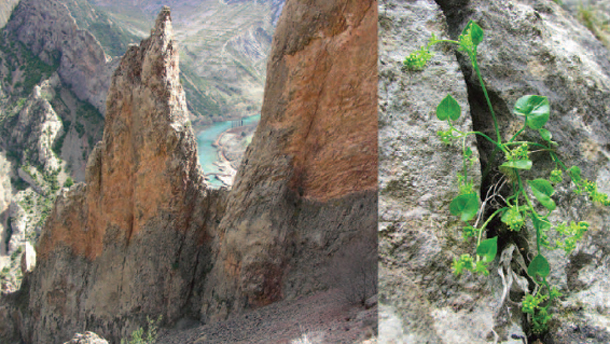
Worlds’ rarest plant survives by eating ants for 300 years
One of the world’s rarest plants, which only grows on two cliff faces in Spain, has been found to have an amazing life span of around 300 years!
There are around 10,000 Borderea chouardii growing in the crevices in the rock, and the small herbs are only found on the Pyrenees Mountains in Spain. The plant is thought to have existed since the death of the dinosaurs, but was only discovered in 1952. This plants incredible lifespan was noticed by Maria Garcia from the Spanish National Research Centre during observation when she noticed that the plant only produced 139 seedlings over 17 years, that’s only 8 seeds a year!

Maria’s main goal while observing the plant was to figure out how the plant manages to reproduce. Her first thought that it would be via wind, but after studying the plants further, placing microscope slides next to the male plants, there was no pollen found in the wind whatsoever.
She then spent 76 hours watching the plant to see if any insects were visiting the plant, and found that the majority were of just 2 species of ant. These ants were taking the pollen from the males and rather effectively pollinating the female plants. Over the 17 years of observation, around 83% of the female plants were bearing fruit.
This raised the question, how does the plant disperse its seeds? It was seen to be yet another species of ant, which preferred these seeds to any other plant, and would eat two thirds of the seeds collected, before dragging the rest into a crevice to germinate.
However this is a somewhat risky strategy, as Maria said, the plant is “putting all its stakes on just one kind of mutualist,” and if the ants were move away from this area, the plants could become extinct. “It is difficult to imagine other animals playing the ants’ role,” says Garcia.
Garcia and her colleagues are currently attempting to grow the plants in two new sites, whilst also working to protect the current population, so hopefully there will be many Borderea chouardii around for the future.
